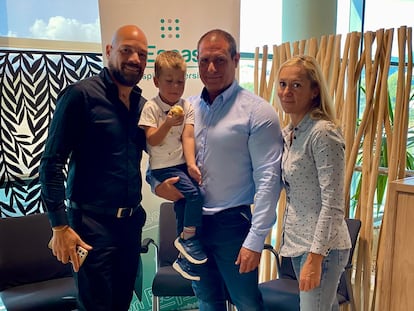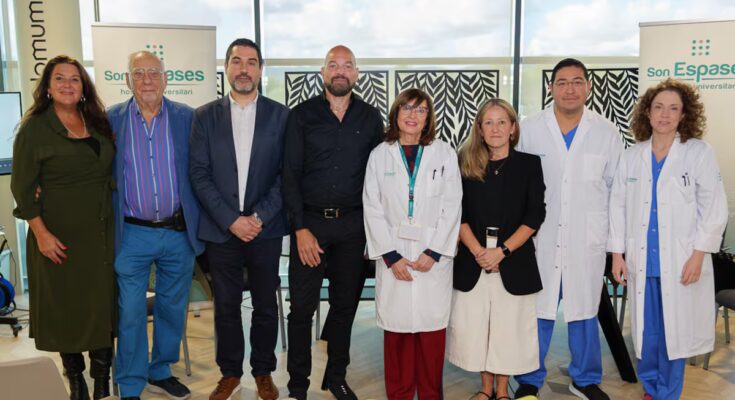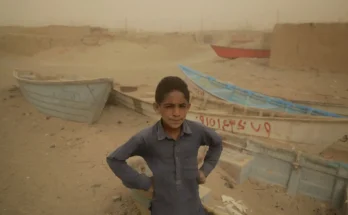The story of Larrick Ebanks, 58, and the medical team at the Son Espases hospital, in Palma, began in December 2021 when this British citizen resident in the Balearic Islands went to the health center with severe bilateral pneumonia that developed after contracting Covid. His condition was critical and the medical team agreed to put him into a coma to connect him to a machine that would replace the functioning of his lungs, which were severely affected by the virus. Ebanks called a friend to let her know what was going to happen and to see her off until she woke up again, she didn’t know when. It was 82 days. Almost three months unconscious, connected to a machine that extracted his blood, artificially oxygenated it and returned it to his body, allowing his lungs to rest to recover. He is the patient from the Balearic Islands who has been connected to this machine for the longest.
“When I woke up from the coma and saw all the people around me and all the efforts they had made to help me, I knew I had to do something in my life to help,” Ebanks said Monday, surrounded by his medical team, family and friends, three years after being discharged from the disease. During this period, he conducted a fundraising campaign that allowed him to donate an ECMO (extracorporeal membrane oxygenation) machine worth 78,650 euros to the Son Espases hospital and which, a month ago, was added to the four that already work in the center and which are installed in the intensive care unit. Much of the money needed to procure the equipment was contributed by the JoyRon Foundation, which helps needy children in the Balearic Islands, which has channeled the sums raised by Ebanks through numerous charity events organized in recent months.
Doctor María Teresa Millán, who treated Ebanks during his hospital stay, showed her “emotion” at the patient’s gesture. He explained that ECMO machines are used in critical situations, when a patient’s heart or lungs cannot function on their own. “This is a therapy that can be decisive for patients suffering from episodes of severe pneumonia or heart failure,” says intensivist doctor José Raúl Arévalo, who underlines the importance of having this type of technology, which also works for pediatric patients and can also be transferred to the most serious cases. The use of this device requires specialized equipment and is only used if other conventional measures have failed.
Three years after discharge, the consequences of the disease remain, according to Ebanks, who has both lungs affected by Covid. “Unfortunately the right one is paralyzed and it’s as if it has a small bubble inside. I also have problems with the left one and I was discharged three years ago. The doctors told me that it probably won’t get better, so I have the same problems as when I left hospital”, he underlines. Despite this, this professional singer continues to perform and declares himself lucky because his life “can continue” and right now he smiles at him.
The new equipment arriving at the hospital will also allow it to treat pediatric patients such as Tadeo Konnings, who is three and a half years old and suffers from a rare heart disease. According to his father Freddy, when his wife was 12 weeks pregnant, the baby was diagnosed with a heart problem which forced doctors to transfer the family to the Sant Joan de Deu hospital in Barcelona, to treat the newborn baby. “After a surgical complication he was connected to ECMO for nine days,” explains his father.

He knew Ebanks from the gym and this led him to talk to him and share the story of his son, with whom they attended charity fundraising events. “It seemed strange to me that in the Balearic Islands there were only four ECMO machines while in Barcelona Tadeo had two in his room. So I told Larrick to help him with what he wanted and I think just sharing my son’s experience helped a lot to raise awareness,” he explains.
The money for the purchase of the equipment was channeled through the JoyRon Foundation to help disadvantaged children on the islands, while the administrative management was handled by the Islands Health Research Institute Foundation (Idisba), which acted as an intermediary in the acquisition process, as donations of this type to public hospitals are not very common. From now on, Son Espases will have more resources to help patients with very serious problems and whose future depends entirely on this machine. “I believe we are in this life to help each other,” Ebanks concludes.



